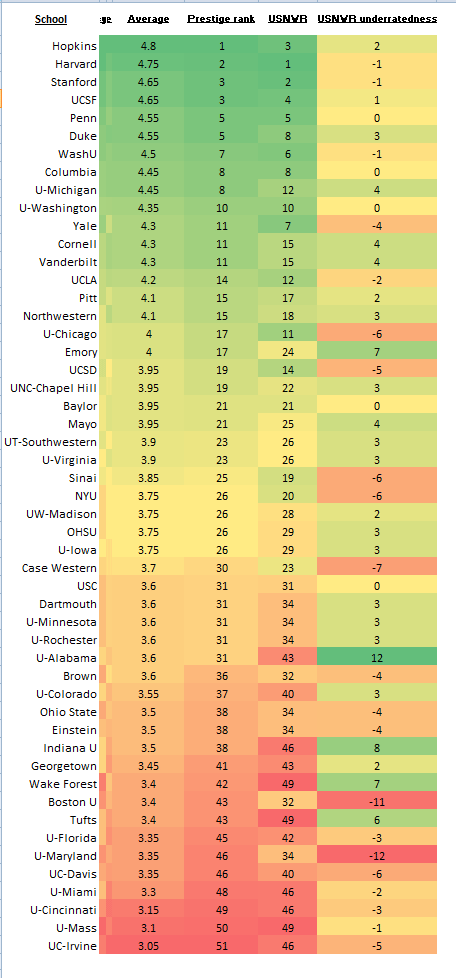You need the paid US News subscription to see the exact values for all the schools, but here are the current orders for the top few dozen
By PD assessment:
Harvard, Hopkins, UCSF
Stanford, Penn
WashU, Duke, Columbia
Michigan
Cornell, UCLA, U of Wash, Vandy
Northwestern, Yale
Baylor, Emory, U Chicago, Pitt
Mayo
UTSW, UVA
NYU, Oregon, UCSD, UNC
Brown, Case Western, Dartmouth, Gtown, Sinai, Rochester, USC, U of Wisconsin
Indiana, Tufts, Colorado, Iowa, U of Minnesota
Boston U, Ohio State, U of Alabama, Wake Forest, U of Utah
Miami, Einstein
By peer schools:
Harvard, Hopkins, UCSF
Stanford
WashU
Penn
Columbia, Duke, Michigan, U of Wash, Yale
Vandy
Cornell, UCLA, U Chicago
Northwestern, UNC, Pitt, UTSW
Emory, UCSD
Mayo
Baylor, NYU, Colorado, Iowa, Wisconsin
Sinai, Oregon, Alabama, UVA
Case Western, Dartmouth, Minnesota, Rochester
Brown, Indiana, Ohio State, USC


